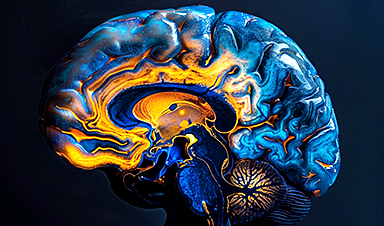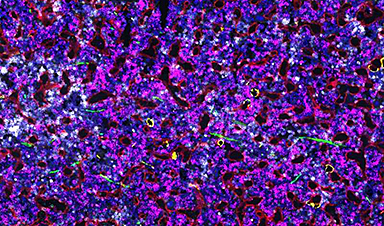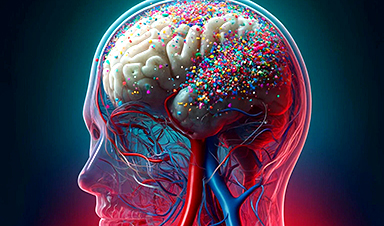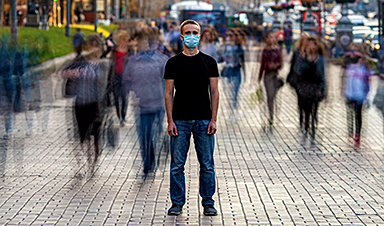Catching Covid is associated with a fivefold increase in the risk of deep vein thrombosis (DVT) and a 33-fold increase in risk of a potentially fatal blood clot on the lung in the 30 days after becoming infected, data suggests.
The findings, published in the British Medical Journal on Thursday, could help explain a doubling in the incidence of, and deaths from, blood clots in England since the start of the pandemic compared with the same periods in 2018 and 2019.
They also help to put the very small increased risk of blood clots associated with Covid-19 vaccination into context. “The degree of complications associated with Covid-19 is much stronger and lasts for much longer than what we might be getting after vaccination,” said Dr Frederick Ho, a lecturer in public health at the University of Glasgow, who was not involved in the research.
“Even those people with mild symptoms who do not need to be hospitalised might have a small increase in the risk of [blood clots].”
Although previous research had suggested that catching Covid was associated with an increased risk of blood clots, it was unclear for how long this risk remained, and whether mild infections also increased people’s risk.
To address these uncertainties, Anne-Marie Fors Connolly at Umeå University in Sweden and her colleagues measured the risk of DVT, pulmonary embolism – a blood clot on the lung – and various types of bleeding, such as gastrointestinal bleeding or a burst blood vessel in the brain, in more than 1 million people with confirmed Covid infections and more than 4 million uninfected individuals.
Overall, they identified a 33-fold increase in the risk of pulmonary embolism, a fivefold increase in the risk of DVT and an almost twofold increase in the risk of bleeding in the 30 days after infection. People remained at increased risk of pulmonary embolism for six months after becoming infected, and for two and three months for bleeding and DVT.
Although the risks were highest in patients with more severe illness, even those with mild Covid had a threefold increased risk of DVT and a sevenfold increased risk of pulmonary embolism. No increased risk of bleeding was found in those who experienced mild infections.
“Pulmonary embolism can be fatal, so it is important to be aware [of this risk],” said Connolly. “If you suddenly find yourself short of breath, and it doesn’t pass, [and] you’ve been infected with the coronavirus, then it might be an idea to seek help, because we find this increased risk for up to six months.”
Ho said the results remained relevant even in the Omicron era, since current vaccines were highly effective against severe Covid but breakthrough infections were common, even after a third dose of a vaccine.
“Despite the potential for new variants of concern, most governments are removing restrictions and shifting their focus to determining how best to live with Covid. This study reminds us of the need to remain vigilant to the complications associated with even mild Sars-CoV-2 infection, including [blood clots].”
News
Researchers Reveal What Happens to Your Brain When You Don’t Get Enough Sleep
What if poor sleep was doing more than just making you tired? Researchers have discovered that disrupted sleep in older adults interferes with the brain’s ability to clean out waste, leading to memory problems [...]
How to prevent chronic inflammation from zombie-like cells that accumulate with age
In humans and other multicellular organisms, cells multiply. This defining feature allows embryos to grow into adulthood, and enables the healing of the many bumps, bruises and scrapes along the way. Certain factors can [...]
Breakthrough for long Covid patients who lost sense of smell
A breakthrough nasal surgery has restored the sense of smell for a dozen long Covid patients. Experts at University College London Hospitals NHS Foundation Trust successfully employed a technique typically used for correcting blocked nasal passages, [...]
Scientists Invent Plastic That Can Dissolve In Seawater In Just A Few Hours
Plastic waste and pollution in the sea have been among the most serious environmental problems for decades, causing immense damage to marine life and ecosystems. However, a breakthrough discovery may offer a game-changing solution. [...]
Muscles from the 3D printer
Swiss researchers have developed a method for printing artificial muscles out of silicone. In the future, these could be used on both humans and robots. Swiss researchers have succeeded in printing artificial muscles out [...]
Beneficial genetic changes observed in regular blood donors
Researchers at the Francis Crick Institute have identified genetic changes in blood stem cells from frequent blood donors that support the production of new, non-cancerous cells. Understanding the differences in the mutations that accumulate [...]
Shocking Amounts of Microplastics in the Brain – It Could Be Increasing Our Risk of Dementia
The brain has higher concentrations of plastic particles compared to other organs, with increased levels found in dementia patients. In a comprehensive commentary published in Brain Medicine, researchers highlight alarming new evidence of microplastic accumulation [...]
Baffling Scientists for Centuries: New Study Unravels Mystery of Static Electricity
ISTA physicists demonstrate that contact electrification depends on the contact history of materials. For centuries, static electricity has intrigued and perplexed scientists. Now, researchers from the Waitukaitis group at the Institute of Science and [...]
Tumor “Stickiness” – Scientists Develop Potential New Way To Predict Cancer’s Spread
UC San Diego researchers have developed a device that predicts breast cancer aggressiveness by measuring tumor cell adhesion. Weakly adherent cells indicate a higher risk of metastasis, especially in early-stage DCIS. This innovation could [...]
Scientists Just Watched Atoms Move for the First Time Using AI
Scientists have developed a groundbreaking AI-driven technique that reveals the hidden movements of nanoparticles, essential in materials science, pharmaceuticals, and electronics. By integrating artificial intelligence with electron microscopy, researchers can now visualize atomic-level changes that were [...]
Scientists Sound Alarm: “Safe” Antibiotic Has Led to an Almost Untreatable Superbug
A recent study reveals that an antibiotic used for liver disease patients may increase their risk of contracting a dangerous superbug. An international team of researchers has discovered that rifaximin, a commonly prescribed antibiotic [...]
Scientists Discover Natural Compound That Stops Cancer Progression
A discovery led by OHSU was made possible by years of study conducted by University of Portland undergraduates. Scientists have discovered a natural compound that can halt a key process involved in the progression [...]
Scientists Just Discovered an RNA That Repairs DNA Damage – And It’s a Game-Changer
Our DNA is constantly under threat — from cell division errors to external factors like sunlight and smoking. Fortunately, cells have intricate repair mechanisms to counteract this damage. Scientists have uncovered a surprising role played by [...]
What Scientists Just Discovered About COVID-19’s Hidden Death Toll
COVID-19 didn’t just claim lives directly—it reshaped mortality patterns worldwide. A major international study found that life expectancy plummeted across most of the 24 analyzed countries, with additional deaths from cardiovascular disease, substance abuse, and mental [...]
Self-Propelled Nanoparticles Improve Immunotherapy for Non-Invasive Bladder Cancer
A study led by Pohang University of Science and Technology (POSTECH) and the Institute for Bioengineering of Catalonia (IBEC) in South Korea details the creation of urea-powered nanomotors that enhance immunotherapy for bladder cancer. The nanomotors [...]
Scientists Develop New System That Produces Drinking Water From Thin Air
UT Austin researchers have developed a biodegradable, biomass-based hydrogel that efficiently extracts drinkable water from the air, offering a scalable, sustainable solution for water access in off-grid communities, emergency relief, and agriculture. Discarded food [...]






















